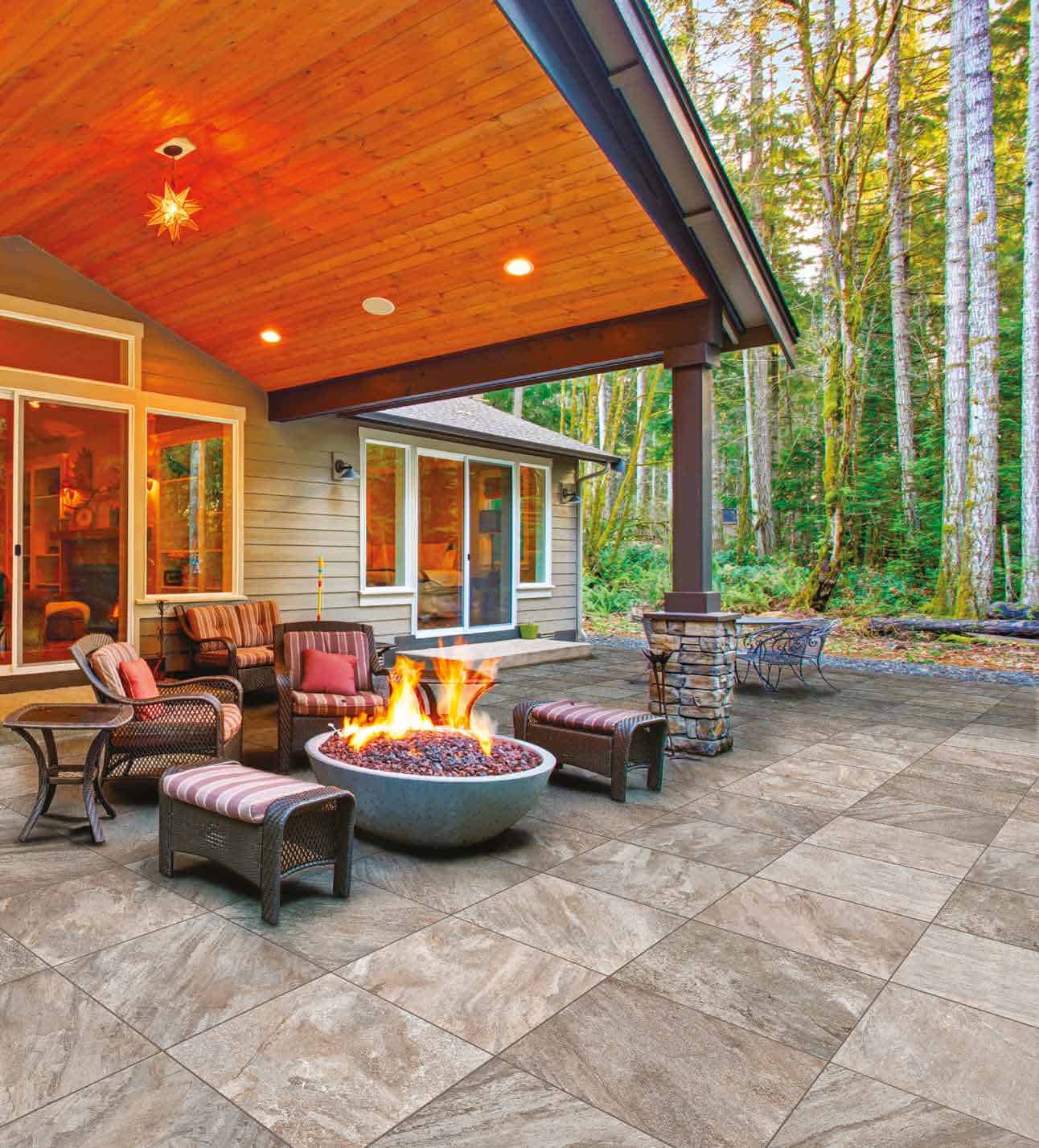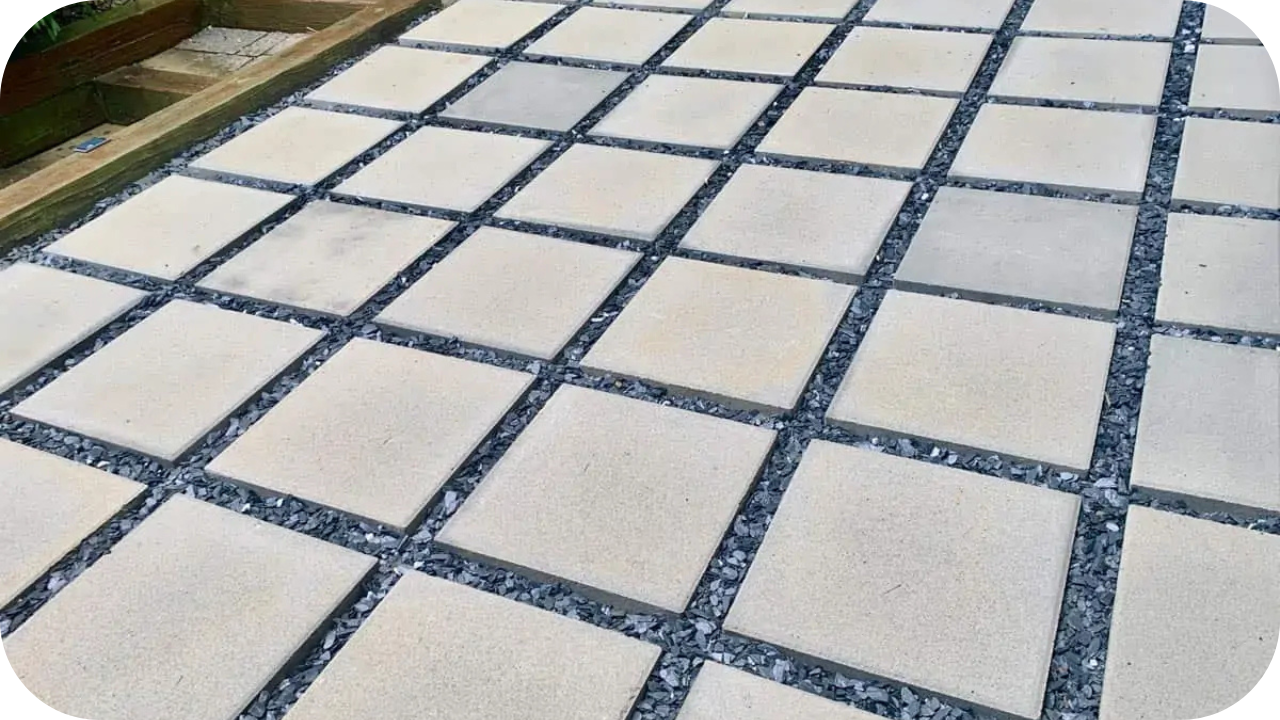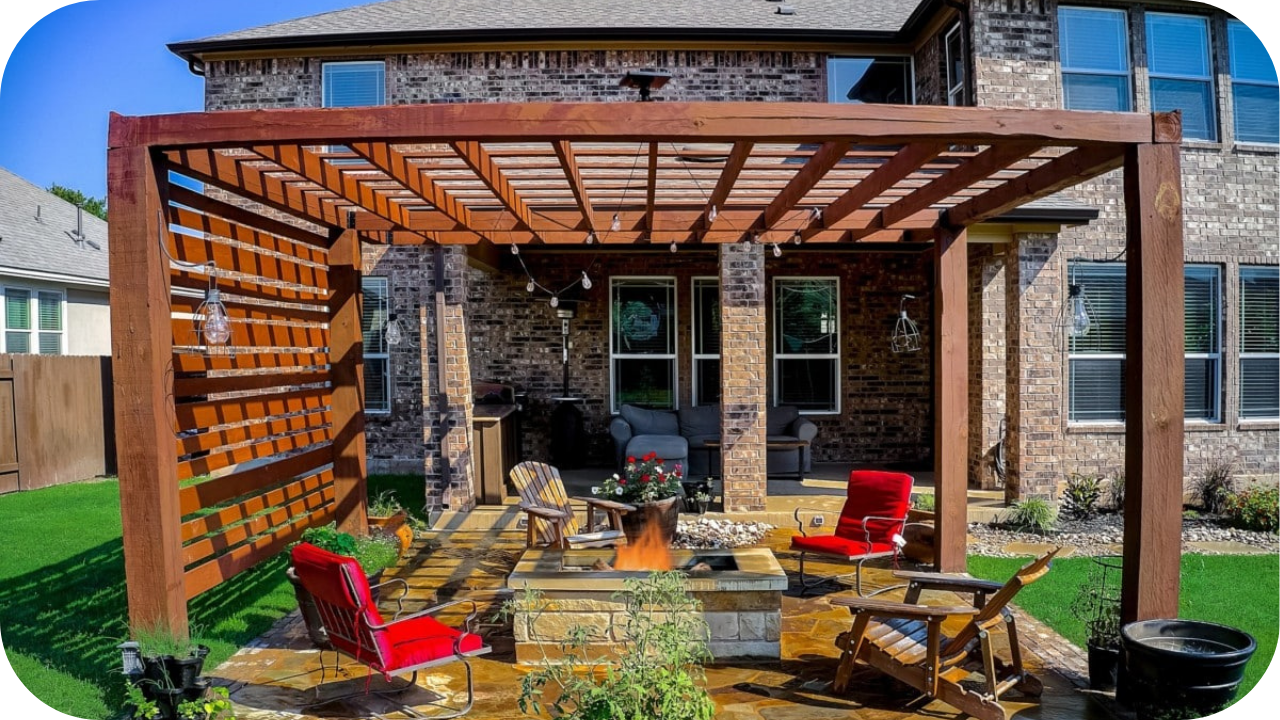
Choosing the right porcelain pavers for your outdoor space can be overwhelming, with many options.
Making the wrong choice can lead to costly maintenance, poor durability, and an unsatisfactory appearance, which can cause frustration and regret.
This guide will walk you through essential tips and factors to consider, ensuring you select the perfect porcelain pavers for your outdoor space, combining beauty, durability, and ease of maintenance.
1. Assess Your Space
Before selecting porcelain pavers, it’s crucial to assess your outdoor space comprehensively. This initial step ensures that your chosen pavers will enhance functionality and aesthetics.
First, evaluate the size and layout of your outdoor area. Measure the dimensions accurately and consider the space’s shape. This will help determine the quantity of pavers needed and the best pattern for installation.
Next, consider the space’s intended use. Is it a high-traffic area like a driveway or walkway or a more relaxed setting like a patio or pool surround? Different regions may require pavers with varying levels of durability and slip resistance.
Additionally, consider the existing landscape and architectural features. The pavers should complement the style of your home and garden. For instance, modern homes may benefit from sleek, minimalist pavers, while rustic properties look best with pavers that mimic natural stone.
2. Determine Your Style
Choosing the right porcelain pavers involves determining the style that best suits your outdoor space. This step is essential for creating a cohesive and visually appealing environment.
Identify Your Preferred Aesthetic
Are you drawn to a modern, minimalist look or prefer a rustic, traditional charm? Porcelain pavers come in a wide range of designs, colours, and finishes, allowing you to achieve your desired style. Consider pavers with smooth surfaces and neutral tones for a sleek, contemporary appearance.
If you prefer a more natural look, choose pavers that mimic the texture and colour of natural stone or wood.
Explore Available Options
The choice of texture and finish can significantly impact the overall feel of your space. Matte finishes provide a more understated look, while glossy finishes can add a touch of sophistication. Textured surfaces not only add visual interest but also enhance slip resistance.
Complement Your Home’s Architecture
Consider how the pavers blend with your home’s exterior and landscape. The right pavers should enhance the style of your house and integrate seamlessly with your garden or patio design. Consider the colours and materials used in your home’s exterior and choose pavers that harmonise with these elements.
3. Evaluate Durability and Strength
When selecting porcelain pavers, evaluating their durability and strength is crucial to ensure they withstand the demands of your outdoor space. High-quality porcelain pavers are known for their robustness, but it’s essential to understand what contributes to their strength.
- Manufacturing Process: Porcelain pavers are created by firing clay at extremely high temperatures, resulting in a dense and durable material that is highly resistant to cracking, chipping, and wear.
- Load-Bearing Capacity: Consider the intended use of the area where the pavers will be installed. For high-traffic areas like driveways or commercial spaces, choose pavers with a high load-bearing capacity to withstand heavy weights without damage.
- Thickness and Density: The thickness and density of the pavers are key indicators of their durability. Thicker pavers offer better performance and longevity, especially in heavy use or extreme weather conditions.
- Weather Resistance: Porcelain pavers are inherently resistant to weather elements, including frost, heat, and UV rays. Their non-porous nature prevents water absorption, reducing the risk of freeze-thaw damage and maintaining their integrity in various climates.
4. Consider Slip Resistance
Slip resistance is critical when choosing porcelain pavers, especially for areas prone to getting wet, such as pool surrounds, patios, and walkways. Ensuring the safety of your outdoor space should be a top priority.
- Textured Surfaces: Porcelain pavers are available in various textures that enhance grip. Opt for pavers with a textured finish, which significantly reduces the risk of slipping, even when the surface is wet. This makes them ideal for areas frequently exposed to water or moisture.
- Slip Resistance Ratings: Check the pavers’ slip resistance ratings. Ratings such as the R-value (ranging from R9 to R13) indicate the level of slip resistance, with higher values offering better grip. For outdoor areas, especially those around pools, selecting pavers with a higher R-rating ensures maximum safety.
- Compliance with Safety Standards: Ensure the pavers comply with local safety standards and regulations. This guarantees that the pavers meet the necessary criteria for slip resistance, providing peace of mind for you and your family.
- Maintenance and Cleaning: Regular maintenance and cleaning can also help maintain the slip resistance of your porcelain pavers. Removing debris and algae build-up keeps the surface safe and functional.
5. Weather Resistance
Weather resistance is crucial when choosing porcelain pavers for your outdoor space. Pavers’ ability to withstand various weather conditions ensures their durability and longevity.
- Frost Resistance: Porcelain pavers are non-porous, meaning they do not absorb water. This characteristic prevents freeze-thaw damage, a common issue in colder climates where absorbed water can freeze, expand, and cause pavers to crack.
- Heat Resistance: In hot climates, porcelain pavers remain cool underfoot, unlike some materials that can become uncomfortably hot. Their ability to resist high temperatures without warping or discolouring makes them ideal for sunny outdoor areas.
- UV Stability: Prolonged exposure to UV rays can cause some paving materials to fade or deteriorate. Porcelain pavers are UV stable, ensuring their colours and finishes remain vibrant and intact over time, even in sunny environments.
- Moisture Resistance: The non-porous nature of porcelain also means it resists moisture penetration, preventing issues like mould, mildew, and staining. This makes porcelain pavers suitable for areas with high humidity or frequent rainfall, maintaining their appearance and functionality.
6. Maintenance Requirements
Understanding the maintenance requirements of porcelain pavers is crucial for preserving their beauty and functionality over time. While porcelain is known for its durability and resistance to staining, proper care ensures longevity.
- Regular Cleaning: Regularly sweep or hose down the pavers to remove dirt, leaves, and debris. This prevents them from becoming slippery and maintains their appearance.
- Stain Resistance: Porcelain pavers are highly resistant to stains due to their non-porous surface. However, prompt cleaning of spills such as oil or wine is recommended to prevent potential staining.
- Sealing: Porcelain pavers do not usually require sealing. Their dense composition naturally protects against moisture and stains. However, a penetrating sealer can be applied for extra protection in high-traffic or spill-prone areas.
- Avoid Harsh Chemicals: Use mild detergents or specialised porcelain cleaners for stubborn stains. Avoid harsh chemicals or abrasive cleaners that could damage the paver’s surface.
- Regular Inspections: Periodically inspect the pavers for any signs of damage, such as chips or cracks. Addressing issues promptly can prevent further damage and ensure safety.
7. Installation Process
Installing porcelain pavers is critical to their performance and durability in your outdoor space. Here’s what you need to know to ensure a successful installation:
- Surface Preparation: Start with a clean, level, and well-compacted base. This ensures stability and prevents pavers from shifting over time.
- Adhesive Application: Use a suitable adhesive or mortar designed for porcelain pavers. Apply it evenly to the prepared surface to create a strong bond.
- Laying Pavers: Carefully lay each paver, ensuring consistent spacing and alignment. Use spacers to maintain uniformity between pavers.
- Cutting Pavers: Use a wet saw with a diamond blade to cut porcelain pavers to fit edges or corners. Wear appropriate safety gear and handle pavers with care to avoid breakage.
- Grouting: Once pavers are laid and the adhesive has cured, apply grout between the joints. Choose a grout that complements the paver colour and enhances stability.
- Sealing (Optional): Depending on the location and desired level of protection, consider applying a sealer after grouting to enhance stain resistance.
8. Cost and Value
When choosing porcelain pavers for your outdoor space, consider the initial cost and the long-term value they provide. Porcelain pavers typically cost more upfront than other materials like concrete or natural stone, with prices varying based on size, design, and brand.
Additionally, it’s essential to factor in the installation costs, including labour, materials, and any necessary preparations for the base or surface. Despite the higher initial investment, porcelain pavers offer significant long-term value.
They are highly durable, resistant to stains, scratches, and fading, and require minimal maintenance over their lifespan. This durability and low maintenance can lower future repair and replacement costs compared to less durable materials, providing a solid return on investment.
Furthermore, porcelain pavers often mimic the look of natural stone or wood, providing a high-end aesthetic that enhances the value and appeal of your property.
Conclusion
Selecting suitable porcelain pavers for your outdoor space involves assessing durability, style, maintenance needs, and cost. With their resilience and aesthetic versatility, porcelain pavers offer a durable solution that enhances your property’s value and appeal.
Ready to transform your outdoor space? Contact us today to explore our range and find the perfect porcelain pavers for your project.
More To Explore

Top Outdoor Paving Ideas for Aussie Backyards
Are you ready to transform your Aussie backyard with stunning paving ideas? Whether you’re looking to create a stylish outdoor entertaining area, a functional pathway,

Small Backyard? Here’s How to Maximise with Stone
Struggling to make the most of your small backyard space? Many homeowners with limited outdoor areas feel restricted when it comes to design. But what


